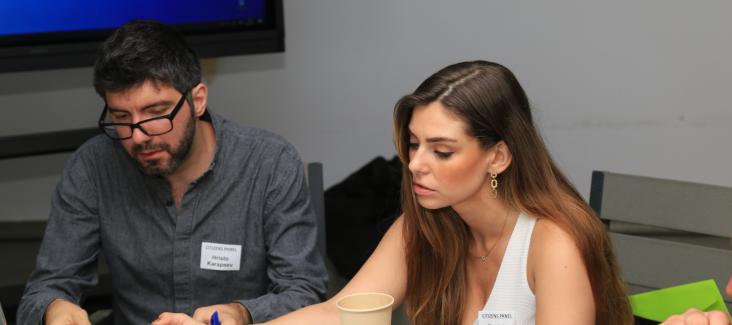That’s what the European Commission attempts to do via the Defence of Democracy (DoD) package, unveiled in December 2023. The package reflects a commitment to protect and enhance democratic values amidst the various challenges faced by the EU and member states.
Sounds great? Not so fast.
While the essence of the DoD package is well-intentioned and aims to foster and protect European democracy, not all of it is being welcomed with open arms as unintended consequences may surface. Namely, the centrepiece of the package: the proposed foreign funding directive.
Already back in the spring and summer of 2023, Vice Presidents of the Commission invited civil society organisations including Democracy International to several rounds of consultations in relation to the DoD package, although much of the information regarding the planned directive was still under close wraps. As a result, over 230 civil society organisations signed an open letter coordinated by Civil Society Europe expressing serious concerns about the proposed foreign interference directive, calling for an impact assessment. In particular, CSOs called to assess if fundamental rights would be affected and whether any limitation of those rights would be necessary and proportionate to achieve the desired aim of the proposed law.
Here are the main concerns shared by us and fellow organisations:
1. Suspicion Over Efficiency: A leading concern is that the proposed “national transparency register” could lead to suspicion and stigmatisation, treating NGOs with international funding as if they're secret agents. It's like slapping a "foreign agent" label on NGOs. In some member states (looking at you, Hungary), the added level of national scrutiny over NGOs will only shrink an already shrinking civic space. Plus, there’s already a EU Transparency Register. The question is, why isn’t that enough? And why aren’t corporate lobbyists being targeted?
2. Fundamental Rights at Risk: The proposed foreign interference act might play fast and loose with fundamental rights. The broad definitions and wide reach might miss the mark in countering malign foreign interference, potentially impacting fundamental freedoms instead.
3. Global Fallout: There's a fear that the proposed act could backfire on the EU's efforts to promote democratic freedoms worldwide. Some countries are already using similar laws to justify their own interference rules, possibly leading to retaliation against EU-based organisations operating abroad.
4. Legal Tangle: Legal eagles are concerned about the proposed act contradicting planned legal bases and risking violations of EU law. This could create hurdles in the free movement of capital, and recent judgments emphasise the importance of not deterring civil society with transparency restrictions.
5. Unintended Consequence: By zeroing in on foreign funding, the act might inadvertently harm legitimate, open, and transparent CSOs. There's a real risk of stigmatisation and harassment, as similar laws in other countries have shown, weakening the fabric of civil society.
The DoD package does include very welcome recommendations on strengthening civic engagement, but any positive impacts of these recommendations will probably be overshadowed by the foreign funding directive.
EU democracy's defenders are concerned not just about valid threats from abroad but also are concerned about fostering a vibrant civil society at home. To build a resilient, democratic EU, we do need to tackle both - but not at the expense of civil society's essential role as the bedrock of a thriving democracy.

